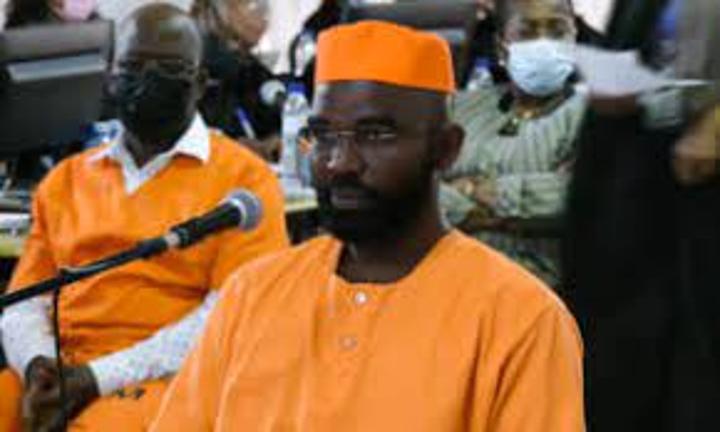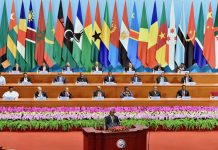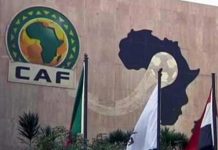Africa-Press – Mozambique. Judge Efigenio Baptista, of the Maputo City Court, on Tuesday warned Antonio Carlos do Rosario, once the head of economic intelligence in the Mozambican security service (SISE), that he will order his arrest on charges of contempt, if he continues to show disrespect for the court.
Rosario is the last of the 19 people accused of crimes related to Mozambique’s “hidden debts” to testify. He played a pivotal role in setting up the three fraudulent companies at the heart of the scandal – Proindicus, Ematum (Mozambique Tuna Company), and MAM (Mozambique Asset Management) – and became chairperson of the board of all three companies.
Unlike the earlier defendants, Rosario entered the courtroom with a swagger, waving cheerily to the reporters, and even giving them a clenched fist salute. The only comparably arrogant behaviour by a suspect that AIM can recall was displayed by Anibal dos Santos Junior (“Anibalzinho”), the man who led the death squad that murdered Mozambique’s foremost investigative journalist, Carlos Cardoso in 2000.
When he returned to Maputo in 2003 after his re-arrest in South Africa, following an escape from custody, Anibalzinho too waved to the press and public from the steps of the plane carrying him back, as if he were a returning champion.
As he testified, it soon became clear that Rosario regarded himself as something of a hero who had been “unjustly arrested”. Like his former boss, Gregorio Leao, General Director of SISE under former President Armando Guebuza, there were many questions he did not wish to answer on grounds of “national security”.
Some of his claims were easily disproved. Thus he claimed that he had only met Teofilo Nhangumele, a key intermediary between Mozambican officials and the Abu Dhabi based company Privinvest, when both men were under arrest in 2019.
But the prosecution has detailed accounts of meetings between Rosario and Nhangumele – notably a meeting in Maputo’s Polana Hotel, at which Nhangumele was demanding that Proindicus pay him for work done, and Rosario refused.
When prosecutor Sheila Marrengula confronted him with details of the meeting, Rosario first said “a long time has passed”, then “I can’t confirm if there was a meeting or not”, and finally, “this information is not real”.
Tensions between Rosario and Marrengula rose when the prosecutor demanded information on the company Txopela Investments. Rosario admitted that he had set up this company, but then claimed “it doesn’t belong to SISE, it is used by SISE. It’s a cover company”.
Last week Leao had said that Txopela was set up in the context of the coastal protection project that led to the creation of Proindicus. But now Rosario flatly denied that Txopela had anything to do with the project to defend Mozambique’s Exclusive Economic Zone.
He declined to explain what he meant by an “operational company”, and declared to Baptista “I’m not going to fall into your trap!”
“I don’t want to discuss this (Txopela), I want to discuss the hidden debts”, Rosario exclaimed.
“This is all concerned with the hidden debts”, retorted the judge. “And it’s not the accused who decide what questions are asked. Txopela is part of the debts”.
“No it’s not, and never was!”, shouted Rosario, interrupting Baptista.
“Don’t raise your voice”, warned the judge. “Are you threatening the court?”
A few minutes later Rosario accused Marrengula of “playing games”. At this Baptista said “you’ve gone past the limits”. If he wanted to insult the Public Prosecutor, he would be charged with contempt of court, so that, regardless of the outcome of this trial, he would back on court facing new charges.
“Each incident of disrespect is a crime”, said Baptista. Rosario said he didn’t much care since “I’ve already been detained illegally for the last two and a half years”.
Eventually Baptista asked Rosario’s lawyer, Alexandre Chivale, to persuade his client to change his attitude.
After a five minute interval, Rosario seemed to have calmed down. But Chivale paid a price. For Chivale, in addition to his legal duties, is also an administrator of Txopela Investments, and so Marrengula asked what the connection was between Chivale and SISE.
“Alexandre Chivale is a collaborator of SISE”, Rosario declared. Turning to his lawyer he said “Sorry I’ve blown your cover”.
Rosario also claimed he was an expert in setting up companies. He said he could create four or five companies a day, and reckoned that in his SISE career he had set up over 1,000 companies. The claim is absurd, but it should alarm genuine business associations.






